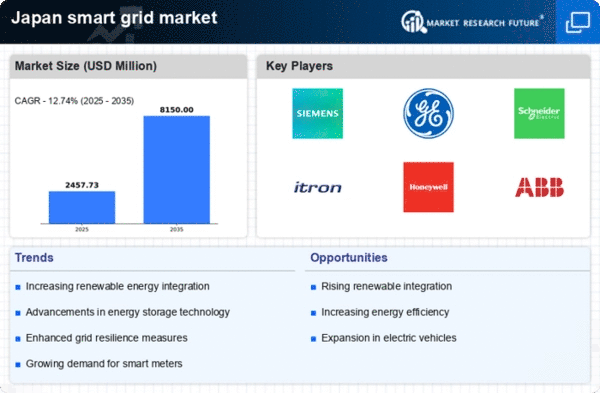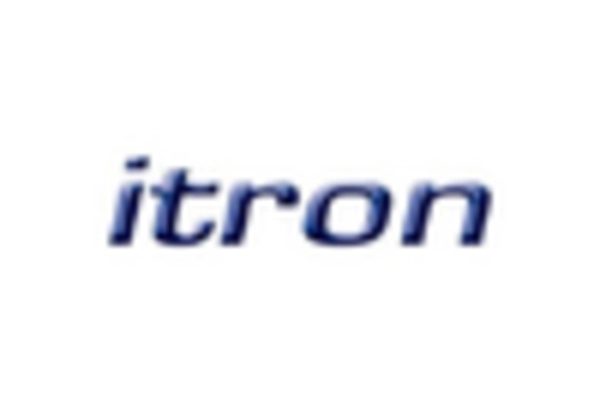Enhanced Cybersecurity Measures
As the smart grid market in Japan expands, the need for robust cybersecurity measures becomes increasingly critical. The integration of digital technologies into energy systems exposes them to potential cyber threats, necessitating the implementation of advanced security protocols. In 2025, the market for cybersecurity solutions within the smart grid sector is expected to grow significantly, with projections indicating a value of around $1.5 billion. This growth reflects the heightened awareness of the importance of protecting critical infrastructure from cyberattacks. Consequently, the smart grid market is likely to evolve with a focus on enhancing security measures, ensuring the integrity and reliability of energy systems.
Growing Environmental Awareness
The increasing environmental awareness among consumers and businesses is influencing the smart grid market in Japan. As climate change concerns escalate, there is a collective push towards sustainable energy solutions. The smart grid market is positioned to address these concerns by promoting the use of renewable energy sources and reducing greenhouse gas emissions. In 2025, it is estimated that the adoption of smart grid technologies could lead to a reduction of up to 20% in carbon emissions from the energy sector. This shift towards sustainability is likely to drive further investments in smart grid initiatives, as stakeholders recognize the importance of environmentally friendly energy practices.
Rising Demand for Energy Efficiency
The growing emphasis on energy efficiency is a key driver for the smart grid market in Japan. With energy consumption on the rise, there is an urgent need for solutions that can reduce waste and enhance efficiency. The Japanese government has set ambitious targets to reduce energy consumption by 30% by 2030, which is likely to propel investments in smart grid technologies. The smart grid market is expected to play a crucial role in achieving these targets by enabling better demand response and load management. In 2025, the market is anticipated to witness a compound annual growth rate (CAGR) of 12%, driven by the increasing adoption of smart meters and energy management systems. This trend indicates a significant shift towards more sustainable energy practices within the smart grid market.
Technological Advancements in Energy Management
The smart grid market in Japan is experiencing a surge due to rapid technological advancements in energy management systems. Innovations such as advanced metering infrastructure (AMI) and real-time data analytics are enhancing grid efficiency and reliability. These technologies enable utilities to monitor energy consumption patterns, leading to optimized energy distribution. In 2025, the market for smart grid technologies in Japan is projected to reach approximately $10 billion, reflecting a growth rate of around 15% annually. This growth is driven by the increasing need for efficient energy management solutions that can accommodate the integration of renewable energy sources. As a result, the smart grid market is becoming increasingly vital for Japan's energy landscape, facilitating a transition towards a more sustainable energy future.
Increased Investment in Infrastructure Modernization
Japan's aging energy infrastructure necessitates substantial investment in modernization, which is a significant driver for the smart grid market. The government has recognized the need to upgrade existing grid systems to enhance resilience and reliability. In 2025, investments in smart grid infrastructure are projected to exceed $8 billion, as utilities seek to replace outdated equipment with advanced technologies. This modernization effort is expected to improve grid stability and facilitate the integration of distributed energy resources. Consequently, the smart grid market is likely to benefit from these investments, as they pave the way for more efficient energy distribution and management.
















